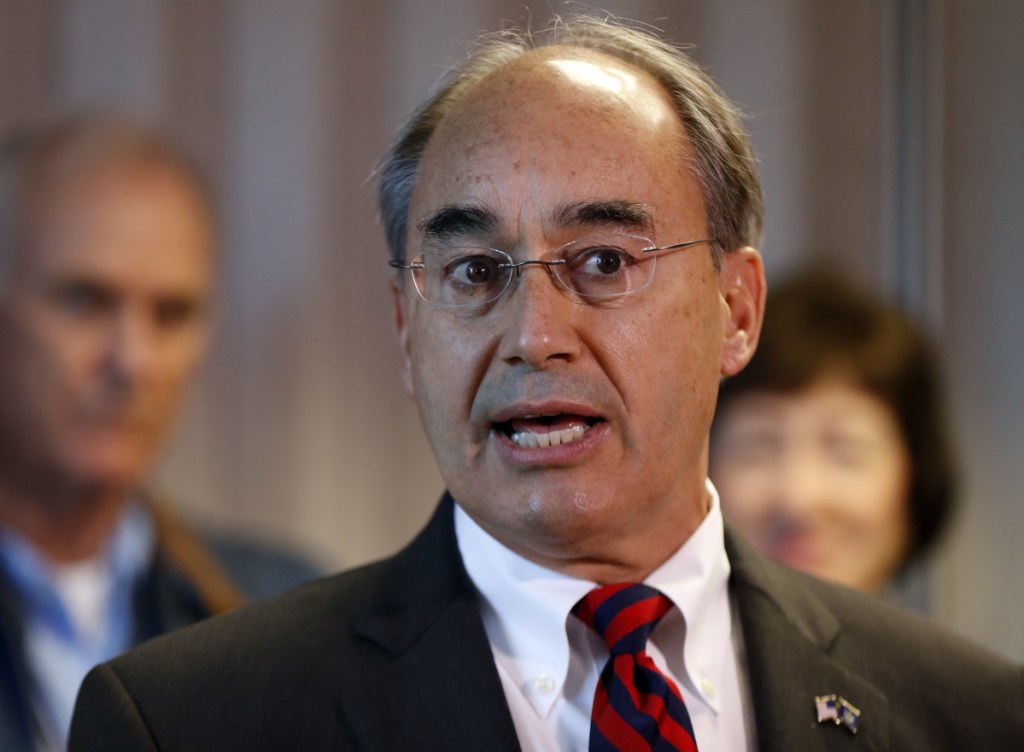Rep. Bruce Poliquin, who voted last year to hand a massive tax cut to the country’s wealthiest corporations and families, says the problem with some of the poorest Mainers is that they have too much food.
The Republican congressman says there should be stricter work requirements for people who receive benefits through the Supplemental Nutrition Assistance Program, or food stamps. In his mind, there is some large group of Americans staying on the couch solely because of the $1 per meal SNAP provides.
Poliquin on Tuesday spun this fiction at — of all places — Good Shepherd Food Bank in Auburn, which forms the safety net for Maine victims of the assault on hunger assistance. It has been Good Shepherd that has picked up the slack since work requirements installed under Gov. Paul LePage made life more difficult for struggling Mainers.
LePage too thought that forcing SNAP recipients to prove they were searching for work or in job training would boost people out of poverty. Instead, most just found themselves worse off, kicked out of the program not because they were gaming it, but because they couldn’t overcome bureaucratic barriers stacked against them.
As a result, hunger here flatlined — even worsened by some measurements — as it improved elsewhere. Food banks set records as LePage celebrated a drop in those receiving SNAP.
Poliquin wants Maine’s experience repeated all over the country. He’s had the work-requirement language inserted in the House version of 2019 Farm Bill, which will soon be reconciliated with the Senate version into a compromise bill.
If his language survives, the federal government will surely spend less on hunger assistance — but that won’t mean that fewer people are hungry. Instead, the poorest, most vulnerable Americans will be made further poor and vulnerable. SNAP benefits — an average of $124 a month per household — are not enough alone to get people by, but they can make the difference between sickness and health, or living on the margins and falling off altogether.
Rather than guaranteed assistance to help Americans when they are down, Poliquin prefers to let a “rising economy” do the job, he told the Sun Journal during his tour of Good Shepherd.
That’s the same economy, however, that has Maine with record-low unemployment but also stubborningly high levels of hunger. It’s the same economy with record profits for corporations but stagnant wages for workers.
It’s the same economy that has undergone the second-longest expansion in American history without doing much for Americans at the lowest rungs.
The Republican tax cuts supported by Poliquin only make matters worse. The congressman, who said this week that there is a “finite amount of money out there” for helping feed struggling Americans, voted for hundreds of billions of dollars in tax cuts for corporations already getting rich, many of them by exploiting workers in the kind of low-wage, low-security jobs that dominate the economy, and keep working Americans just a lost paycheck or two away from catastrophe.
Don’t worry, though. Poliquin is sure that some of the money earned by the richest Americans will find its way to places like Good Shepherd, who in turn can help the poor.
Let’s hope it’s not too much — you know how harmful a full belly can be.
Send questions/comments to the editors.



Comments are no longer available on this story